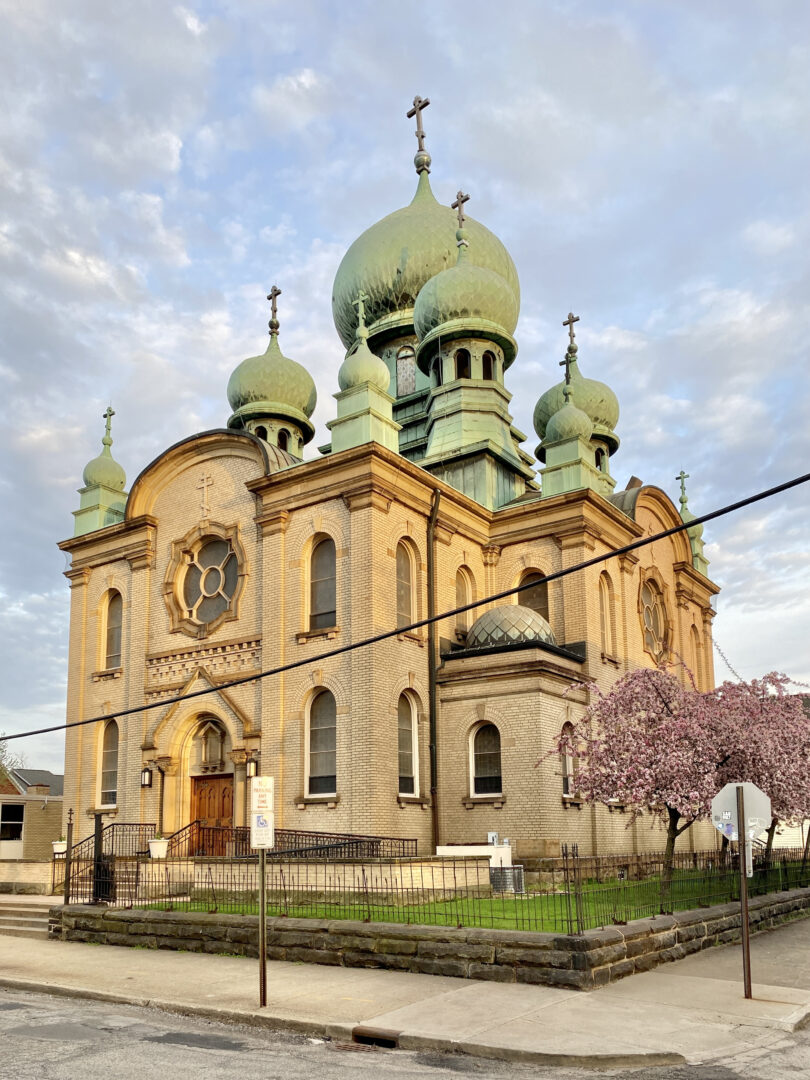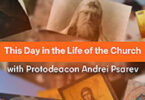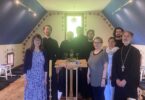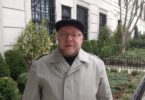The Seventh All-American Sobor ended in Cleveland, Ohio, on this day in 1946.
Since the beginning of the twentieth century, the Russian Church in America had supported the development of a nationally and ethnically diverse ecclesiastical body under the aegis of the Russian Church. The Russian Revolution was a turning point for the Orthodox Church in America. The old “imperial” identity was lost and a new one had yet to be fostered.
Metropolitan Platon (Rozhdestvenskii) of Odessa and Kherson came to America in 1921 with permission from the Supreme Church Authority Abroad. In 1922, Patriarch Tikhon confirmed him as a ruling bishop. Metropolitan Platon was able to hold the diocese back from anarchy. The price for this was high: Metropolitan Platon played along with “the spirit of America”, tending to want to keep the church independent from the “old world.” At the same time, until 1926, he recognized the authority of the Russian bishops in Serbia (ROCOR). Thenceforth, until his death in 1934, he was suspended by the ROCOR and Metropolitan Sergii’s Synod in Russia.
Metropolitan Theophilus (Pashkovskii) succeeded Metropolitan Platon as the head of the North American Metropolia. In 1935, he went to Serbia. At the episcopal conference there, he voiced his approval for organizing the Russian Church diaspora administratively into metropolitan districts that recognized the ROCOR Synod and Council of Bishops as a supreme authority.
The Sixth All-American Sobor in the same year approved the activity of Metropolitan Theophilus with “105 for, 9 against, 122 abstentions” (see: The 6th All-American Sobor).
During the war years, most of the ROCOR’s parishes were located on territory controlled by the Axis powers and their satellites. In 1934, the Russian Church Abroad received the status of a public corporation under German law. There was a lot of wishful thinking in the Russian church diaspora about the Germans helping to restore an independent Russian state.
With the restoration of the Patriarchate in 1943 and the election of Patriarch Alexis I in 1945, there was another kind of wishful thinking on behalf of the North American Metropolia, about the Russian Church approving the Metropolia’s autonomous status. For this, the Moscow Patriarchate required that it sever ties with the Russian Church Abroad.
The regulations of the All-Russian Council of 1917–18 necessitated that all decisions be endorsed by an assembly of bishops. At the council in Cleveland, most of the bishops were against breaking up with the Russian Church Abroad (Metropolitan Theophilus was not among them). The majority of the delegates were against remaining subordinate to the ROCOR. Thus, the two churches parted ways, while explaining what happened differently. From the point of view of many in the Russian Church Abroad, the Metropolia had gone into schism. From the point of view of some in the Metropolia, it was merely the end of a temporary arrangement. After all, the whole situation in the diaspora was canonically unprecedented. The circumstances in Russia, where Patriarch Alexis was elected by open voting, were also extraordinary.
Relevant Links:
Nikolaj Kostur, “The Relationship between The Russian Orthodox Church in North America and The Russian Orthodox Church Abroad from 1920-1950,” Historical Studies of the Russian Church Abroad.
Seth Davidenko, “Archbishop Vitaly Maximenko and the North American Metropolia: Based on His Correspondence” Historical Studies of the Russian Church Abroad.
Bishop Ieronim (Chernov), “The Current State of the Russian Church Abroad,” (1946) Historical Studies of the Russian Church Abroad.
Decision of the Court of California on the Right of the Ownership of the Cathedral in Los Angeles, (1949) Historical Studies of the Russian Church Abroad.
Archpriest Gregory Lomako, “Regarding the Decision of the California Supreme Court in the Los Angeles Case,” Historical Studies of the Russian Church Abroad.
Archpriest Michael Polsky, “The American Metropolia and the Los Angeles Trial,” Historical Studies of the Russian Church Abroad.
The Synod of the Russian Church Abroad, “On Relations Between ROCOR and North American Metropolia in 1946-1965,” Historical Studies of the Russian Church Abroad.











